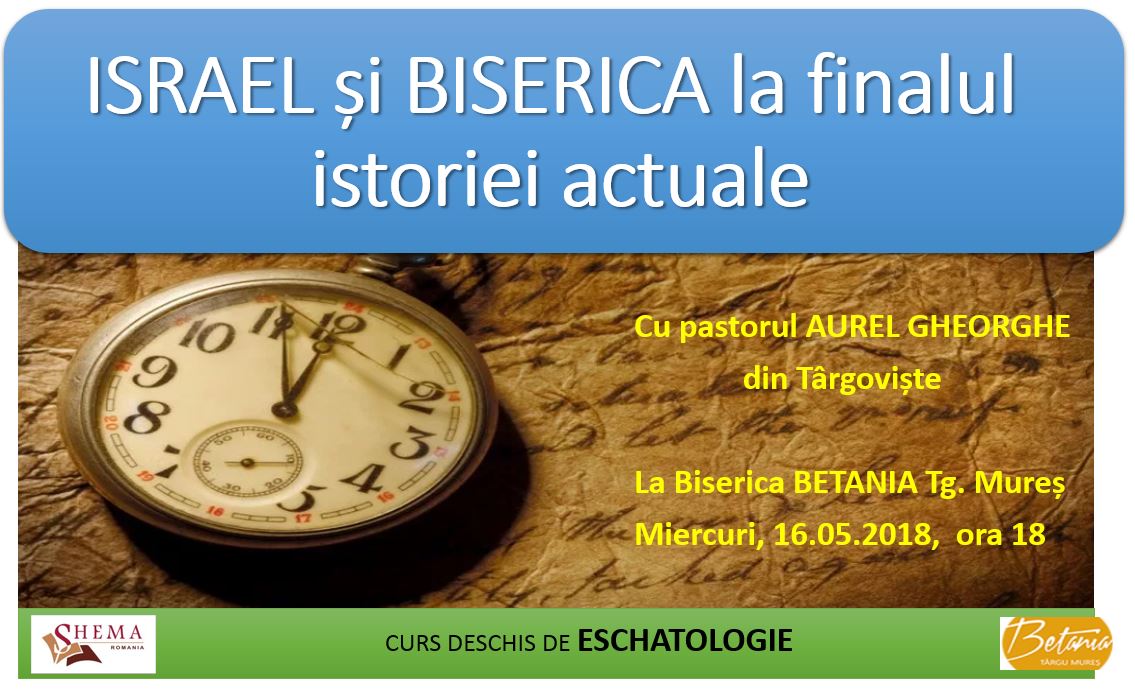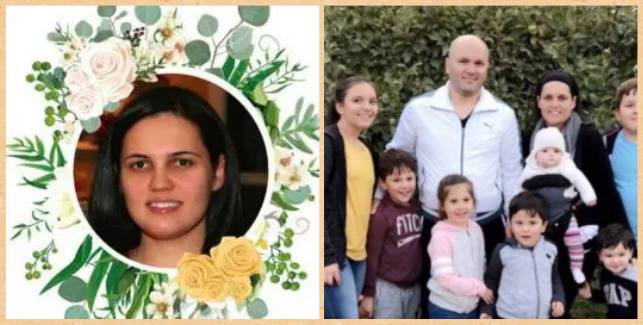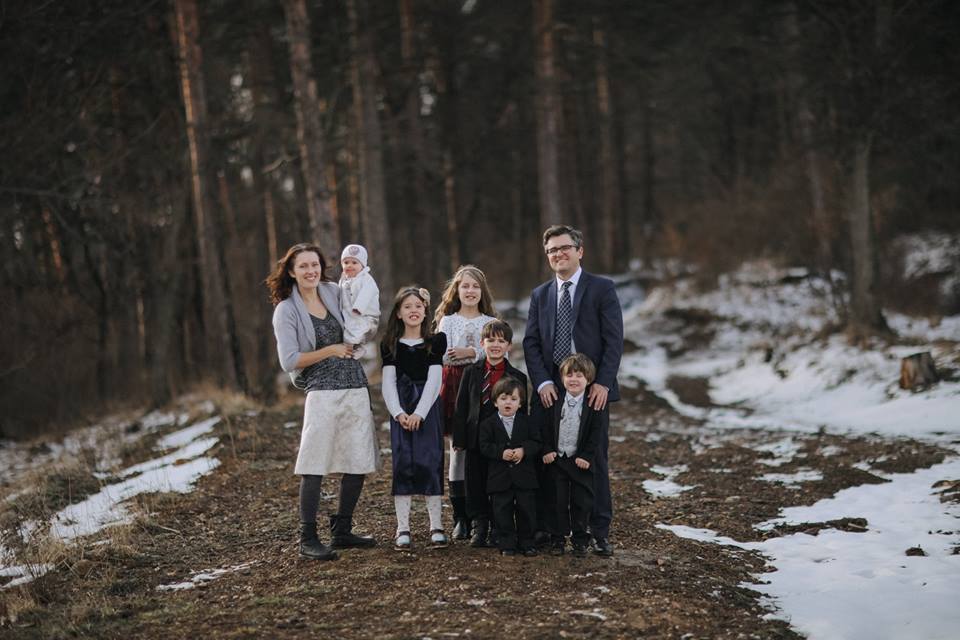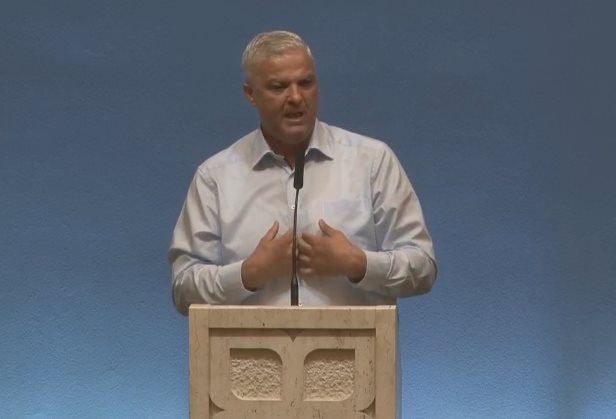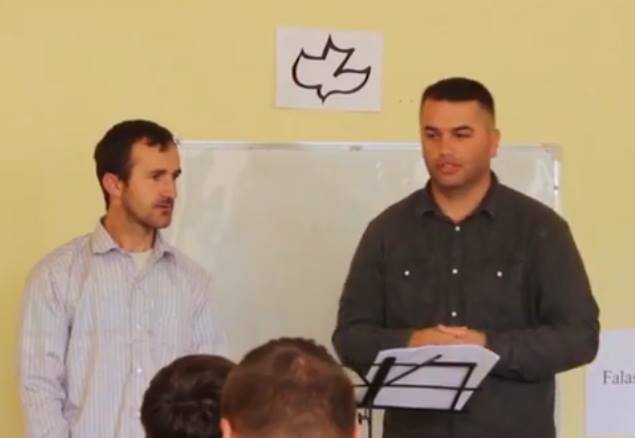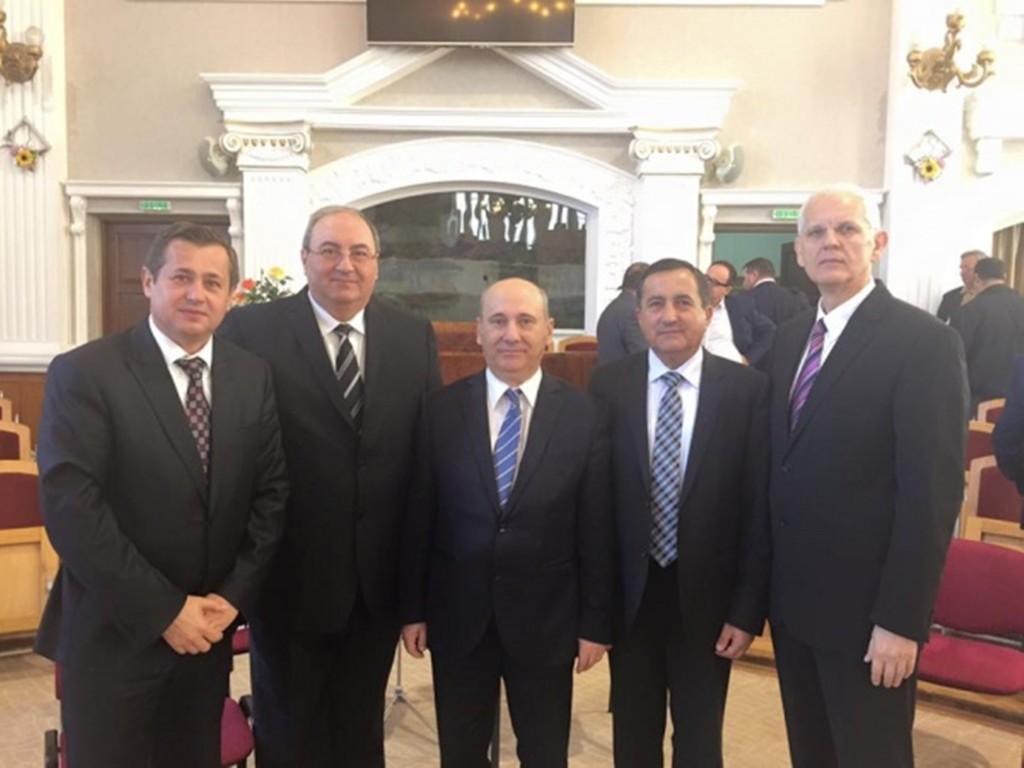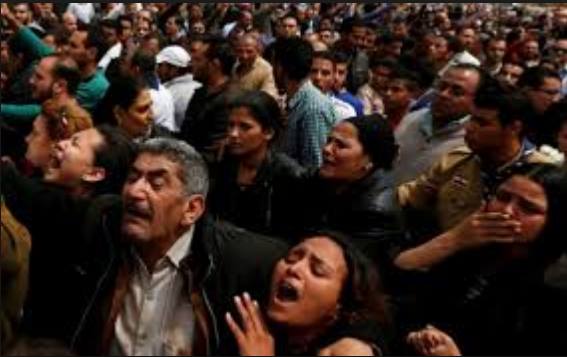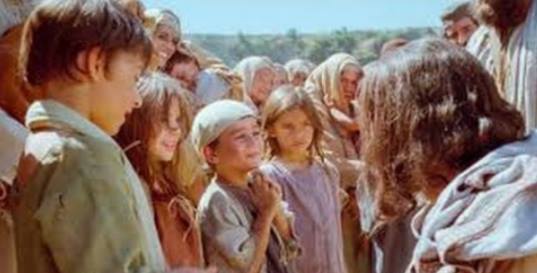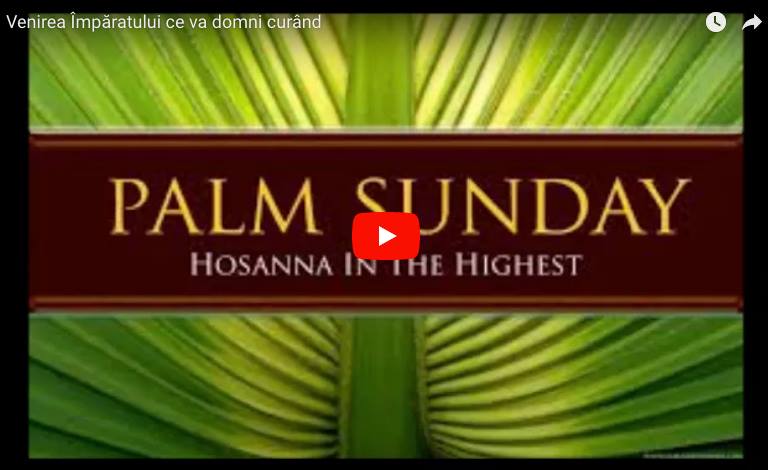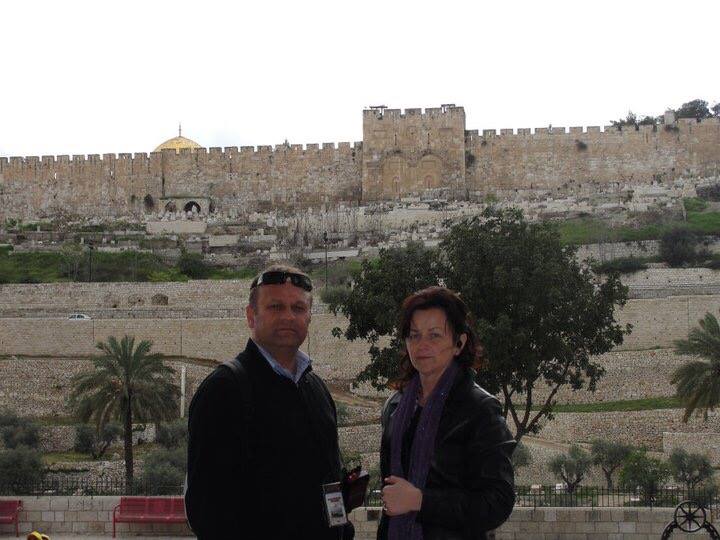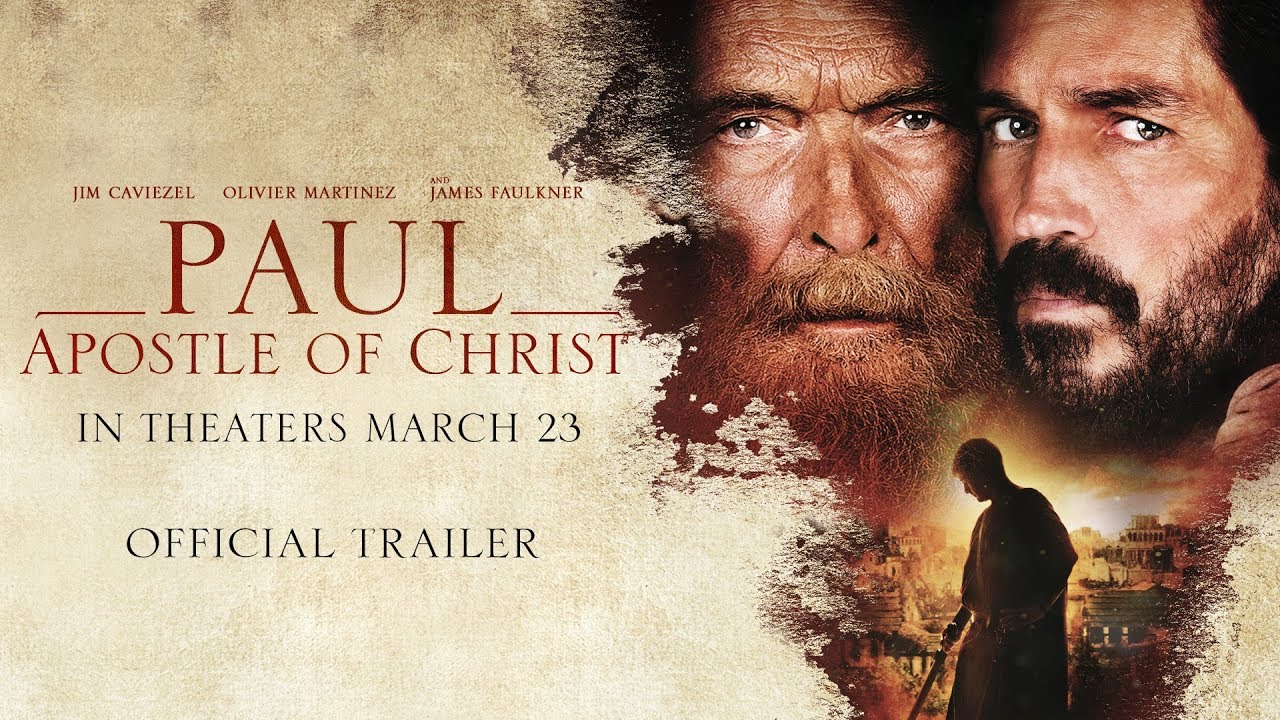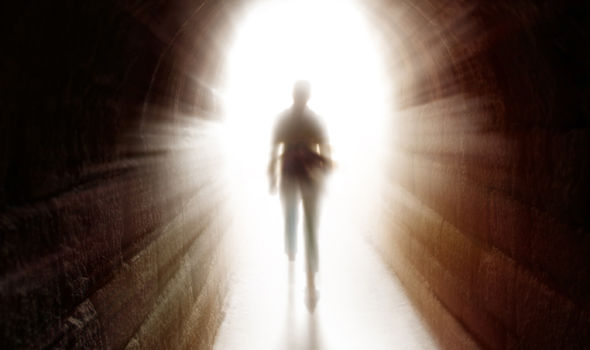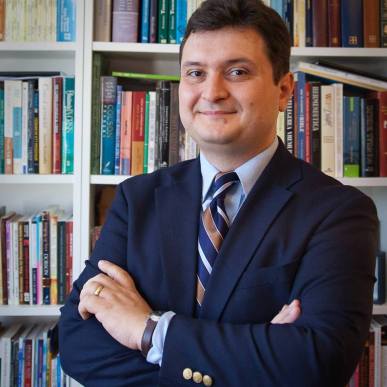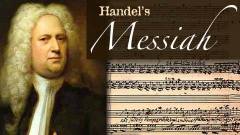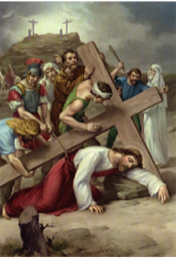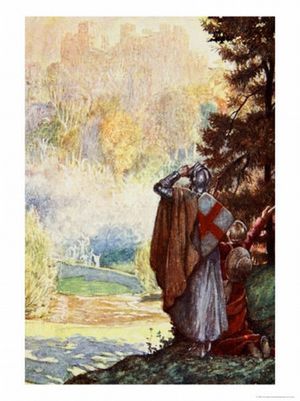
photo credit regenerationandrepentance.wordpress.com
A little bit about J C Ryle from Wikipedia:
Ryle was a strong supporter of the evangelical school and a critic of Ritualism. He was a writer, pastor and an evangelical preacher. Among his longer works are Christian Leaders of the Eighteenth Century (1869), Expository Thoughts on the Gospels (7 vols, 1856–69), Principles for Churchmen (1884). Ryle was described as having a commanding presence and vigorous in advocating his principles albeit with a warm disposition. He was also credited with having success in evangelizing the blue collar community. His second son, Herbert Edward Ryle also a clergyman, became Dean of Westminster.
Ryle, J.C (John Charles) (1816-1900)
Thoroughly evangelical in his doctrine and uncompromising in his principles, J.C. Ryle was a prolific writer, vigorous preacher, and faithful pastor.
He was born at Macclesfield and educated at Eton and Christ Church, Oxford. He was a fine athlete who rowed and played Cricket for Oxford, where he took a first class degree in Modern Greats and was offered a college fellowship (teaching position) which he declined. The son of a wealthy banker, he was destined for a career in politics before answering a call to ordained ministry.
He was spiritually awakened in 1838 while hearing Ephesians 2 read in church. He was ordained by Bishop Sumner at Winchester in 1842. For 38 years he was a parish vicar, first at Helmingham and later at Stradbrooke, in Suffolk. He became a leader of the evangelical party in the Church of England and was noted for his doctrinal essays and polemical writings. In 1880, at age 64, he became the first bishop of Liverpool, at the recommendation of Prime Minister Benjamin Disraeli. He retired in 1900 at age 83 and died later the same year.
In his diocese, he exercised a vigorous and straightforward preaching ministry, and was a faithful pastor to his clergy, exercising particular care over ordination retreats. He formed a clergy pension fund for his diocese and built over forty churches. Despite criticism, he put raising clergy salaries ahead of building a cathedral for his new diocese. Ryle combined his commanding presence and vigorous advocacy of his principles with graciousness and warmth in his personal relations. Vast numbers of working men and women attended his special preaching meetings, and many were led to faith in Christ. (Source http://www.anglicanlibrary.org)
God’s Book, the Bible [An undated booklet published in the 1890’s.]
By John Charles Ryle,
First Bishop of Liverpool in 1880
“Search the Scriptures.”—JOHN 5:39
“How readest thou?”—LUKE 10:26
NEXT to praying there is nothing so important in practical religion as Bible-reading. God has mercifully given us a book which is “able to make us wise unto salvation through faith which is in Christ Jesus.” (2 Tim. iii. 15.) By reading that book we may learn what to believe, what to be, and what to do; how to live with comfort, and how to die in peace. Happy is that man who possesses a Bible! Happier still is he who reads it! Happiest of all is he who not only reads it, but obeys it, and makes it the rule of his faith and practice!
Nevertheless it is a sorrowful fact that man has an unhappy skill in abusing God’s gifts. His privileges, and power, and faculties, are all ingeniously perverted to other ends than those for which they were bestowed. His speech, his imagination, his intellect, his strength, his time, his influence, his money,—instead of being used as instruments for glorifying his Maker,—are generally wasted, or employed for his own selfish ends. And just as man naturally makes a bad use of his other mercies, so he does of the written Word. One sweeping charge may be brought against the whole of Christendom, and that charge is neglect and abuse of the Bible.
To prove this charge we have no need to look abroad: the proof lies at our own doors. I have no doubt that there are more Bibles in Great Britain at this moment than there ever were since the world began. There is more Bible buying and Bible selling, more Bible printing and Bible distributing,—than ever was since England was a nation. We see Bibles in every bookseller’s shop,—Bibles of every size, price, and style; Bibles great, and Bibles small,—Bibles for the rich, and Bibles for the poor. There are Bibles in almost every house in the land. But all this time I fear we are in danger of forgetting, that to have the Bible is one thing, and to read it quite another.
This neglected Book is the subject about which I address the readers of this paper today. Surely it is no light matter what you are doing with the Bible. Surely, when the plague is abroad, you should search and see, whether the plague-spot is on you. Give me your attention while I supply you with a few plain reasons why every one who cares for his soul ought to value the Bible highly, to study it regularly, and to make himself thoroughly acquainted with its contents.
1. No Book like the Bible
I. In the first place, there is no book in existence written in such a manner as the Bible.
The Bible was “given by inspiration of God.” (2 Tim, iii. 16.) In this respect it is utterly unlike all other writings. God taught the writers of it what to say. God put into their minds thoughts and ideas. God guided their pens in setting down those thoughts and ideas. When you read it, you are not reading the self-taught compositions of poor imperfect men like yourself, but the words of the eternal God. When you hear it, you are not listening to the erring opinions of short-lived mortals, but to the unchanging mind of the King of kings. The men who were employed to indite the Bible, spoke not of themselves. They “spoke as they were moved by the Holy Ghost.” (2 Peter i. 21.) All other books in the world, however good and useful in their way, are more or less defective. The more you look at them the more you see their defects and blemishes. The Bible alone is absolutely perfect. From beginning to end it is “the Word of God.”
I shall not waste time by attempting any long and laboured proof of this. I say boldly, that the Book itself is the best witness of its own inspiration. It is utterly inexplicable and unaccountable in any other point of view. It is the greatest standing miracle in the world. He that dares to say the Bible is not inspired, let him give a reasonable account of it, if he can. Let him explain the peculiar nature and character of the Book in a way that will satisfy any man of common sense. The burden of proof seems to my mind to lie on him.
It proves nothing against inspiration, as some have asserted, that the writers of the Bible have each a different style. Isaiah does not write like Jeremiah, and Paul does not write like John. This is perfectly true, and yet the works of these men are not a whit less equally inspired. The waters of the sea have many different shades. In one place they look blue, and in another green. And yet the difference is owing to the depth or shallowness of the part we see, or to the nature of the bottom. The water in every case is the same salt sea.—The breath of a man may produce different sounds, according to the character of the instrument on which he plays. The flute, the pipe, and the trumpet, have each their peculiar note. And yet the breath that calls forth the notes, is in each case one and the same.—The light of the planets we see in heaven is very various. Mars, and Saturn, and Jupiter, have each a peculiar colour. And yet we know that the light of the sun, which each planet reflects, is in each case one and the same. Just in the same way the books of the Old and New Testaments are all inspired truth, and yet the aspect of that truth varies according to the mind through which the Holy Ghost makes it flow. The handwriting and style of the writers differ enough to prove that each had a distinct individual being; but the Divine Guide who dictates and directs the whole is always one. All is alike inspired. Every chapter, and verse, and word, is from God.
Oh, that men who are troubled with doubts, and questionings, and skeptical thoughts about inspiration, would calmly examine the Bible for themselves! Oh, that they would act on the advice which was the first step to Augustine’s conversion,—“Take it up and read it!—take it up and read it!” How many Gordian knots this course of action would cut! How many difficulties and objections would vanish away at once like mist before the rising sun! How many would soon confess, “The finger of God is here! God is in this Book, and I knew it not.”
This is the Book about which I address the readers of this paper. Surely it is no light matter what you are doing with this Book. It is no light thing that God should have caused this Book to be “written for your learning,” and that you should have before you “the oracles of God.” (Rom. iii. 2; xv. 4.) I charge you, I summon you to give an honest answer to my question. What art thou doing with the Bible?—Dost thou read it at all?—HOW READEST THOU?
2. Bible Sufficient for Our Salvation
II. In the second place, there is no knowledge absolutely needful to a man’s salvation, except a knowledge of the things which are to be found in the Bible.
We live in days when the words of Daniel are fulfilled before our eyes.—“Many run to and fro, and knowledge is increased.” (Dan. xii. 4.) Schools are multiplying on every side. New colleges are set up. Old Universities are reformed and improved. New books are continually coming forth. More is being taught,—more is being learned,—more is being read,—than there ever was since the world began.
It is all well. I rejoice at it. An ignorant population is a perilous and expensive burden to any nation. It is a ready prey to the first Absalom, or Catiline, or Wat Tyler, or Jack Cade, who may arise to entice it to do evil. But this I say,-we must never forget that all the education a man’s head can receive, will not save his soul from hell, unless he knows the truths of the Bible.
A man may have prodigious learning, and yet never be saved. He may be master of half the languages spoken round the globe. He may be acquainted with the highest and deepest things in heaven and earth. He may have read books till he is like a walking cyclopaedia. He may be familiar with the stars of heaven,—the birds of the air,—the beasts of the earth, and the fishes of the sea. He may be able, like Solomon, to “speak of trees, from the cedar of Lebanon to the hyssop that grows on the wall, of beasts also, and fowls, and creeping things, and fishes.” (1 King iv. 33.) He may be able to discourse of all the secrets of fire, air, earth, and water. And yet, if he dies ignorant of Bible truths, he dies a miserable man! Chemistry never silenced a guilty conscience. Mathematics never healed a broken heart. All the sciences in the world never smoothed down a dying pillow. No earthly philosophy ever supplied hope in death. No natural theology ever gave peace in the prospect of meeting a holy God. All these things are of the earth, earthy, and can never raise a man above the earth’s level. They may enable a man to strut and fret his little season here below with a more dignified gait than his fellow-mortals, but they can never give him wings, and enable him to soar towards heaven. He that has the largest share of them, will find at length that without Bible knowledge he has got no lasting possession. Death will make an end of all his attainments, and after death they will do him no good at all.
A man may be a very ignorant man, and yet be saved. He may be unable to read a word, or write a letter. He may know nothing of geography beyond the bounds of his own parish, and be utterly unable to say which is nearest to England, Paris or New York. He may know nothing of arithmetic, and not see any difference between a million and a thousand. He may know nothing of history, not even of his own land, and be quite ignorant whether his country owes most to Semiramis, Boadicea, or Queen Elizabeth. He may know nothing of the affairs of his own times, and be incapable of telling you whether the Chancellor of the Exchequer, or the Commander-in-Chief, or the Archbishop of Canterbury is managing the national finances. He may know nothing of science, and its discoveries,—and whether Julius Caesar won his victories with gunpowder, or the apostles had a printing press, or the sun goes round the earth, may be matters about which he has not an idea. And yet if that very man has heard Bible truth with his ears, and believed it with his heart, he knows enough to save his soul. He will be found at last with Lazarus in Abraham’s bosom, while his scientific fellow-creature, who has died unconverted, is lost for ever.
There is much talk in these days about science and “useful knowledge.” But after all a knowledge of the Bible is the one knowledge that is needful and eternally useful. A man may get to heaven without money, learning, health, or friends,—but without Bible knowledge he will never get there at all. A man may have the mightiest of minds, and a memory stored with all that mighty mind can grasp,—and yet, if he does not know the things of the Bible, he will make shipwreck of his soul for ever. Woe! woe! woe to the man who dies in ignorance of the Bible!
This is the Book about which I am addressing the readers of these pages today. It is no light matter what you do with such a book. It concerns the life of your soul. I summon you,—I charge you to give an honest answer to my question. What are you doing with the Bible? Do you read it? HOW READEST THOU?
3. No Book Contains Such Important Matters
III. In the third place, no book in existence contains such important matter as the Bible.
The time would fail me if I were to enter fully into all the great things which are to be found in the Bible, and only in the Bible. It is not by any sketch or outline that the treasures of the Bible can be displayed. It would be easy to fill this volume with a list of the peculiar truths it reveals, and yet the half of its riches would be left untold.
How glorious and soul-satisfying is the description it gives us of God’s plan of salvation, and the way by which our sins can be forgiven! The coming into the world of Jesus Christ, the God-man, to save sinners,—the atonement He has made by suffering in our stead, the just for the unjust,—the complete payment He has made for our sins by His own blood,—the justification of every sinner who simply believes on Jesus, the readiness of Father, Son, and Holy Ghost, to receive, pardon, and save to the uttermost,—how unspeakably grand and cheering are all these truths! We should know nothing of them without the Bible.
How comforting is the account it gives us of the great Mediator of the New Testament,—the man Christ Jesus! Four times over His picture is graciously drawn before our eyes. Four separate witnesses tell us of His miracles and His ministry,—His sayings and His doings,—His life and His death,—His power and His love,—His kindness and His patience,—His ways, His words, His works, His thoughts, His heart. Blessed be God, there is one thing in the Bible which the most prejudiced reader can hardly fail to understand, and that is the character of Jesus Christ!
How encouraging are the examples the Bible gives us of good people! It tells us of many who were of like passions with ourselves,—men and women who had cares, crosses, families, temptations, afflictions, diseases, like ourselves, and yet “ by faith and patience inherited the promises,” and got safe home. (Heb. vi. 12.) It keeps back nothing in the history of these people. Their mistakes, their infirmities, their conflicts, their experience, their prayers, their praises, their useful lives, their happy deaths,—all are fully recorded. And it tells us the God and Saviour of these men and women still waits to be gracious, and is altogether unchanged.
How instructive are the examples the Bible gives us of bad people! It tells us of men and women who had light, and knowledge, and opportunities, like ourselves, and yet hardened their hearts, loved the world, clung to their sins, would have their own way, despised reproof, and ruined their own souls for ever. And it warns us that the God who punished Pharaoh, and Saul, and Ahab, and Jezebel, and Judas, and Ananias and Sapphira, is a God who never alters, and that there is a hell.
How precious are the promises which the Bible contains for the use of those who love God! There is hardly any possible emergency or condition for which it has not some “word in season.” And it tells men that God loves to be put in remembrance of these promises, and that if He has said He will do a thing, His promise shall certainly be performed.
How blessed are the hopes which the Bible holds out to the believer in Christ Jesus! Peace in the hour of death,—rest and happiness on the other side of the grave,—a glorious body in the morning of the resurrection,—a full and triumphant acquittal in the day of judgment,—an everlasting reward in the kingdom of Christ,—a joyful meeting with the Lord’s people in the day of gathering together; these, these are the future prospects of every true Christian. They are all written in the book,—in the book which is all true.
How striking is the light which the Bible throws on the character of man! It teaches us what men may be expected to be and do in every position and station of life. It gives us the deepest insight into the secret springs and motives of human actions, and the ordinary course of events under the control of human agents. It is the true “discerner of the thoughts and intents of the heart.” (Heb. iv. 12.) How deep is the wisdom contained in the books of Proverbs and Ecclesiastes! I can well understand an old divine saying, “Give me a candle and a Bible, and shut me up in a dark dungeon, and I will tell you all that the whole world is doing.”
All these are things which men could find nowhere except in the Bible. We have probably not the least idea how little we should know about these things if we had not the Bible. We hardly know the value of the air we breathe, and the sun which shines on us, because we have never known what it is to be without them. We do not value the truths on which I have been just now dwelling, because we do not realize the darkness of men to whom these truths have not been revealed. Surely no tongue can fully tell the value of the treasures this one volume contains. Well might old John Newton say that some books were copper books in his estimation, some were silver, and some few were gold;—but the Bible alone was like a book all made up of bank notes.
This is the Book about which I address the reader of this paper this day. Surely it is no light matter what you are doing with the Bible. It is no light matter in what way you are using this treasure. I charge you, I summon you to give an honest answer to my question,—What art thou doing with the Bible?—Dost thou read it?—HOW READEST THOU?
4. No Book Has Ever Produced Such Wonderful Effects on Mankind
IV. In the fourth place, no book in existence has produced such wonderful effects on mankind at large as the Bible.
(a) The Doctrines of the Bible Turned the world Upside Down
(a) This is the Book whose doctrines turned the world upside down in the days of the Apostles.
Eighteen centuries have now passed away since God sent forth a few Jews from a remote corner of the earth, to do a work which according to man’s judgment must have seemed impossible. He sent them forth at a time when the whole world was full of superstition, cruelty, lust, and sin. He sent them forth to proclaim that the established religions of the earth were false and useless, and must be forsaken. He sent them forth to persuade men to give up old habits and customs, and to live different lives. He sent them forth to do battle with the most grovelling idolatry, with the vilest and most disgusting immorality, with vested interests, with old associations, with a bigoted
priesthood, with sneering philosophers, with an ignorant population, with bloody-minded emperors, with the whole influence of Rome. Never was there an enterprise to all appearance more Quixotic, and less likely to succeed!
And how did He arm them for this battle? He gave them no carnal weapons. He gave them no worldly power to compel assent, and no worldly riches to bribe belief. He simply put the Holy Ghost into their hearts, and the Scriptures into their hands. He simply bade them to expound and explain, to enforce and to publish the doctrines of the Bible. The preacher of Christianity in the first century was not a man with a sword and an army to frighten people, like Mahomet,—or a man with a license to be sensual, to allure people, like the priests of the shameful idols of Hindustan. No! he was nothing more than one holy man with one holy book.
And how did these men of one book prosper? In a few generations they entirely changed the face of society by the doctrines of the Bible. They emptied the temples of the heathen gods. They famished idolatry, or left it high and dry like a stranded ship. They brought into the world a higher tone of morality between man and man. They raised the character and position of woman. They altered the standard of purity and decency. They put an end to many cruel and bloody customs, such as the gladiatorial fights.—There was no stopping the change. Persecution and opposition were useless. One victory after another was won. One bad thing after another melted away. Whether men liked it or not, they were insensibly affected by the movement of the new religion, and drawn within the whirlpool of its power. The earth shook, and their rotten refuges fell to the ground. The flood rose, and they found themselves obliged to rise with it. The tree of Christianity swelled and grew, and the chains they had cast round it to arrest its growth, snapped like tow. And all this was done by the doctrines of the Bible! Talk of victories indeed! What are the victories of Alexander, and Caesar, and Marlborough, and Napoleon, and Wellington, compared with those I have just mentioned? For extent, for completeness, for results, for permanence, there are no victories like the victories of the Bible.
(b) This Book Made the Protestant Reformation
(b) This is the Book which turned Europe upside down in the days of the glorious Protestant Reformation.
No man can read the history of Christendom as it was five hundred years ago, and not see that darkness covered the whole professing Church of Christ, even a darkness that might be felt. So great was the change which had come over Christianity that if an apostle had risen from the dead he would not have recognised it, and would have thought that heathenism had revived again. The doctrines of the Gospel lay buried under a dense mass of human traditions. Penances, and pilgrimages, and indulgences, relic-worship, and image-worship, and saint-worship, and worship of the Virgin Mary, formed the sum and substance of most people’s religion. The Church was made an idol. The priests and ministers of the Church usurped the place of Christ. And by what means was all this miserable darkness cleared away? By none so much as by bringing forth once more the Bible.
It was not merely the preaching of Luther and his friends, which established Protestantism in Germany. The grand lever which overthrew the Pope’s power in that country was Luther’s translation of the Bible into the German tongue.—It was not merely the writings of Cranmer and the English Reformers which cast down popery in England. The seeds of the work thus carried forward were first sown by Wycliffe’s translation of the Bible many years before.—It was not merely the quarrel of Henry VIII and the Pope of Rome, which loosened the Pope’s hold on English minds. It was the royal permission to have the Bible translated and set up in churches, so that every one who liked might read it. Yes! it was the reading and circulation of Scripture which mainly established the cause of Protestantism in England, in Germany, and Switzerland. Without it the people would probably have returned to their former bondage when the first reformers died. But by the reading of the Bible the public mind became gradually leavened with the principles of true religion. Men’s eyes became thoroughly open. Their spiritual understandings became thoroughly enlarged. The abominations of popery became distinctly visible. The excellence of the pure Gospel became a rooted idea in their hearts. It was then in vain for Popes to thunder forth excommunications. It was useless for Kings and Queens to attempt to stop the course of Protestantism by fire and sword. It was all too late. The people knew too much. They had seen the light. They had heard the joyful sound. They had tasted the truth. The sun had risen on their minds. The scales had fallen from their eyes. The Bible had done its appointed work within them, and that work was not to be overthrown. The people would not return to Egypt. The clock could not be put back again. A mental and moral revolution had been effected, and mainly effected by God’s Word. Those are the true revolutions which the Bible effects. What are all the revolutions recorded by Vertot,—what are all the revolutions which France and England have gone through, compared to these? No revolutions are so bloodless, none so satisfactory, none so rich in lasting results, as the revolutions accomplished by the Bible!
This is the book on which the well-being of nations has always hinged, and with which the best interests of every nation in Christendom at this moment are inseparably bound up. Just in proportion as the Bible is honoured or not, light or darkness, morality or immorality, true religion or superstition, liberty or despotism, good laws or bad, will be found in a land. Come with me and open the pages of history, and you will read the proofs in time past. Read it in the history of Israel under the Kings. How great was the wickedness that then prevailed! But who can wonder? The law of the Lord had been completely lost sight of, and was found in the days of Josiah thrown aside in a corner of the temple. (2 Kings xxii. 8.)—Read it in the history of the Jews in our Lord Jesus Christ’s time. How awful the picture of Scribes and Pharisees, and their religion! But who can wonder? The Scripture was “made of none effect by man’s traditions.” (Matt. xv. 6.)—Read it in the history of the Church of Christ in the middle ages. What can be worse than the accounts we have of its ignorance and superstition? But who can wonder? The times might well be dark, when men had not the light of the Bible.
This is the Book to which the civilized world is indebted for many of its best and most praise-worthy institutions. Few probably are aware how many are the good things that men have adopted for the public benefit, of which the origin may be clearly traced up to the Bible. It has left lasting marks wherever it has been received. From the Bible are drawn many of the best laws by which society is kept in order. From the Bible has been obtained the standard of morality about truth, honesty, and the relations of man and wife, which prevails among Christian nations, and which,—however feebly respected in many cases,—makes so great a difference between Christians and heathen. To the Bible we are indebted for that most merciful provision for the poor man, the Sabbath day. To the influence of the Bible we owe nearly every humane and charitable institution in existence. The sick, the poor, the aged, the orphan, the lunatic, the idiot, the blind, were seldom or never thought of before the Bible leavened the world. You may search in vain for any record of institutions for their aid in the histories of Athens or of Rome. Alas! there are many who sneer at the Bible, and say the world would get on well enough without it, who little think how great are their own obligations to the Bible. Little does the infidel workman think, as he lies sick in some of our great hospitals, that he owes all his present comforts to the very book he affects to despise. Had it not been for the Bible, he might have died in misery, uncared for, unnoticed and alone. Verily the world we live in is fearfully unconscious of its debts. The last day alone, I believe, will tell the full amount of benefit conferred upon it by the Bible.
This wonderful book is the subject about which I address the reader of this paper this day. Surely it is no light matter what you are doing with the Bible. The swords of conquering Generals,—the ship in which Nelson led the fleets of England to victory,—the hydraulic press which raised the tubular bridge at the Menai—each and all of these are objects of interest as instruments of mighty power. The Book I speak of this day is an instrument a thousand-fold mightier still. Surely it is no light matter whether you are paying it the attention it deserves. I charge you, I summon you to give me an honest answer this day,—What art thou doing with the Bible? Dost thou read it? HOW READEST THOU?
5. No Book Can Do So Much for Those who Read It Rightly
V. In the fifth place, no book in existence can do so much for every one who reads it rightly as the Bible.
The Bible does not profess to teach the wisdom of this world. It was not written to explain geology or astronomy. It will neither instruct you in mathematics, nor in natural philosophy. It will not make you a doctor, or a lawyer, or an engineer.
But there is another world to be thought of, beside that world in which man now lives. There are other ends for which man was created, beside making money and working. There are other interests which he is meant to attend to, beside those of his body, and those interests are the interests of his soul. It is the interests of the immortal soul which the Bible is especially able to promote. If you would know law, you may study Blackstone or Sugden. If you would know astronomy or geology, you may study Herschel and Lyell. But if you would know how to have your soul saved, you must study the written Word of God.
The Bible is “able to make a man wise unto salvation, through faith which is in Christ Jesus.” (2 Tim. iii. 15.) It can show you the way which leads to heaven. It can teach you everything you need to know, point out everything you need to believe, and explain everything you need to do. It can show you what you are,—a sinner. It can show you what God is,—perfectly holy. It can show you the great giver of pardon, peace, and grace,—Jesus Christ. I have read of an Englishman who visited Scotland in the days of Blair, Rutherford, and Dickson, three famous preachers,—and heard all three in succession. He said that the first showed him the majesty of God,—the second showed him the beauty of Christ,—and the third showed him all his heart. It is the glory and beauty of the Bible that it is always teaching these three things more or less, from the first chapter of it to the last.
The Bible applied to the heart by the Holy Ghost, is the grand instrument by which souls are first converted to God. That mighty change is generally begun by some text or doctrine of the Word, brought home to a man’s conscience. In this way the Bible has worked moral miracles by thousands. It has made drunkards become sober, unchaste people become pure,—thieves become honest; and violent-tempered people become meek. It has wholly altered the course of men’s lives. It has caused their old things to pass away, and made all their ways new. It has taught worldly people to seek first the kingdom of God. It has taught lovers of pleasure to become lovers of God. It has taught the stream of men’s affections to run upwards instead of running downwards. It has made men think of heaven, instead of always thinking of earth, and live by faith, instead of living by sight. All this it has done in every part of the world.
All this it is doing still. What are the Romish miracles which weak men believe, compared to all this, even if they were true? Those are the truly great miracles which are yearly worked by the Word.
The Bible applied to the heart by the Holy Ghost, is the chief means by which men are built up and established in the faith, after their conversion. It is able to cleanse them, to sanctify them, to instruct them in righteousness, and to furnish them thoroughly for all good works. (Psalm cxix. 9; John xvii. 17; 2 Tim. iii. 16, 17.) The Spirit ordinarily does these things by the written Word; sometimes by the Word read, and sometimes by the Word preached, but seldom, if ever, without the Word. The Bible can show a believer how to walk in this world so as to please God. It can teach him how to glorify Christ in all the relations of life, and can make him a good master, servant, subject, husband, father, or son. It can enable him to bear afflictions and privations without murmuring, and say, “It is well.” It can enable him to look down into the grave, and say, “I fear no evil.” (Psalm xxiii. 4.) It can enable him to think on judgment and eternity, and not feel afraid. It can enable him to bear persecution without flinching, and to give up liberty and life rather than deny Christ’s, truth. Is he drowsy in soul? It can awaken him.—Is he mourning? It can comfort him.—Is he erring? It can restore him.—Is he weak? It can make him strong.—Is he in company? It can keep him from evil.—Is he alone? It can talk with him.—(Prov. vi. 22.) All this the Bible can do for all believers, for the least as well as the greatest,—for the richest as well as the poorest. It has done it for thousands already, and is doing it for thousands every day.
The man who has the Bible, and the Holy Spirit in his heart, has everything which is absolutely needful to make him spiritually wise. He needs no priest to break the bread of life for him. He needs no ancient traditions, no writings of the Fathers, no voice of the Church, to guide him into all truth. He has the well of truth open before him, and what can he want more? Yes! though he be shut up alone in a prison, or cast on a desert island, though he never see a church, or minister, or sacrament again,—if he has but the Bible, he has got the infallible guide, and wants no other. If he has but the will to read that Bible rightly, it will certainly teach him the road that leads to heaven. It is here alone that infallibility resides. It is not in the Church. It is not in the Councils. It is not in ministers. It is only in the written Word.
(a) The Bible’s Saving Power
(a) I know well that many say they have found no saving power in the Bible. They tell us they have tried to read it, and have learned nothing from it. They can see in it nothing but hard and deep things. They ask us what we mean by talking of its power.
I answer, that the Bible no doubt contains hard things, or else it would not be the book of God. It contains things hard to comprehend, but only hard because we have not grasp of mind to comprehend them. It contains things above our reasoning powers, but nothing that might not be explained if the eyes of our understanding were not feeble and dim. But is not an acknowledgment of our own ignorance the very corner-stone and foundation of all knowledge? Must not many things be taken for granted in the beginning of every science, before we can proceed one step towards acquaintance with it? Do we not require our children to learn many things of which they cannot see the meaning at first? And ought we not then to expect to find “deep things” when we begin studying the Word of God, and yet to believe that if we persevere in reading it the meaning of many of them will one day be made clear? No doubt we ought so to expect, and so to believe. We must read with humility. We must take much on trust. We must believe that what we know not now, we shall know hereafter; some part in this world, and all in the world to come.
But I ask that man who has given up reading the Bible because it contains hard things, whether he did not find many things in it easy and plain? I put it to his conscience whether he did not see great landmarks and principles in it all the way through? I ask him whether the things needful to salvation did not stand out boldly before his eyes, like the light-houses on English headlands from the Land’s-end to the mouth of the Thames. What should we think of the captain of a steamer who brought up at night in the entrance of the Channel, on the plea that he did not know every parish, and village, and creek, along the British coast? Should we not think him a lazy coward, when the lights on the Lizard, and Eddystone, and the Start, and Portland, and St. Catherine’s, and Beachy Head, and Dungeness, and the Forelands, were shining forth like so many lamps, to guide him up to the river? Should we not say, Why did you not steer by the great leading lights? And what ought we to say to the man who gives up reading the Bible because it contains hard things, when his own state, and the path to heaven, and the way to serve God, are all written down clearly and unmistakably, as with a sunbeam? Surely we ought to tell that man that his objections are no better than lazy excuses, and do not deserve to be heard.
(b) Some Read and Are Not Changed
(b) I know well that many raise the objection, that thousands read the Bible and are not a whit the better for their reading. And they ask us, when this is the case, what becomes of the Bible’s boasted power?
I answer, that the reason why so many read the Bible without benefit is plain and simple;—they do not read it in the right way. There is generally a right way and a wrong way of doing everything in the world; and just as it is with other things, so it is in the matter of reading the Bible. The Bible is not so entirely different from all other books as to make it of no importance in what spirit and manner you read it. It does not do good, as a matter of course, by merely running our eyes over the print, any more than the sacraments do good by mere virtue of our receiving them. It does not ordinarily do good, unless it is read with humility and earnest prayer. The best steam-engine that was ever built is useless if a man does not know how to work it. The best sun-dial that was ever constructed will not tell its owner the time of day if he is so ignorant as to put it up in the shade. Just as it is with that steam-engine, and that sun-dial, so it is with the Bible. When men read it without profit, the fault is not in the Book, but in themselves.
I tell the man who doubts the power of the Bible, because many read it, and are no better for the reading, that the abuse of a thing is no argument against the use of it. I tell him boldly, that never did man or woman read that book in a childlike persevering spirit, like the Ethiopian eunuch, and the Bereans (Acts viii. 28; xvii. 11),—and miss the way to heaven. Yes, many a broken cistern will be exposed to shame in the day of judgment; but there will not rise up one soul who will be able to say, that he went thirsting to the Bible, and found in it no living water,—he searched for truth in the Scriptures, and searching, did not find it. The words which are spoken of Wisdom in the Proverbs are strictly true of the Bible: “ If, thou criest after knowledge, and liftest up thy voice for understanding; if thou seekest her as silver, and searchest for her as for hid treasures; then shalt thou understand the fear of the Lord, and find the knowledge of God.” (Prov. ii. 3, 4, 5.)
This wonderful Book is the subject about which I address the readers of this paper this day. Surely it is no light matter what you are doing with the Bible. What should you think of the man who in time of cholera despised a sure receipt for preserving the health of his body? What must be thought of you if you despise the only sure receipt for the everlasting health of your soul? I charge you, I entreat you, to give an honest answer to my question. What dost thou do with the Bible?—Dost thou read it?—HOW READEST THOU?
6. Bible the Only Standard by which All Doctrines Are Tested
VI. In the sixth place, the Bible is the only rule by which all questions of doctrine or of duty can be tried.
The Lord God knows the weakness and infirmity of our poor fallen understandings. He knows that, even after conversion, our perceptions of right and wrong are exceedingly indistinct. He knows how artfully Satan can gild error with an appearance of truth, and can dress up wrong with plausible arguments, till it looks like right. Knowing all this, He has mercifully provided us with an unerring standard of truth and error, right and wrong, and has taken care to make that standard a written book,—even the Scripture.
No one can look round the world, and not see the wisdom of such a provision. No one can live long, and not find out that he is constantly in need of a counselor and adviser,—of a rule of faith and practice, on which he can depend. Unless he lives like a beast, without a soul and conscience, he will find himself constantly assailed by difficult and puzzling questions. He will be often asking himself, What must I believe? and what must I do?
(a) Difficulties about Doctrine
(a) The world is full of difficulties about points of doctrine. The house of error lies close alongside the house of truth. The door of one is so like the door of the other that there is continual risk of mistakes.
Does a man read or travel much? He will soon find the most opposite opinions prevailing among those who are called Christians. He will discover that different persons give the most different answers to the important question, What shall I do to be saved? The Roman Catholic and the Protestant,—the Neologian and the Tractarian,—the Mormonite and the Swedenborgian, each and all will assert that he alone has the truth. Each and all will tell him that safety is only to be found in his party. Each and all say, “Come with us.” All this is puzzling. What shall a man do?
Does he settle down quietly in some English or Scotch parish? He will soon find that even in our own land the most conflicting views are held. He will soon discover that there are serious differences among Christians as to the comparative importance of the various parts and articles of the faith. One man thinks of nothing but Church government,—another of nothing but sacraments, services, and forms,—a third of nothing but preaching the Gospel. Does he apply to ministers for a solution? He will perhaps find one minister teaching one doctrine, and another another. All this is puzzling. What shall a man do?
There is only one answer to this question. A man must make the Bible alone his rule. He must receive nothing, and believe nothing, which is not according to the Word. He must try all religious teaching by one simple test,—Does it square with the Bible? What saith the Scripture? I would to God the eyes of the laity of this country were more open on this subject.
I would to God they would learn to weigh sermons, books, opinions, and ministers, in the scales of the Bible, and to value all according to their conformity to the Word. I would to God they would see that it matters little who says a thing, whether he be Father or Reformer,—Bishop or Archbishop,—Priest or Deacon,—Archdeacon or Dean. The only question is,—Is the thing said Scriptural? If it is, it ought to be received and believed. If it is not, it ought to be refused and cast aside. I fear the consequences of that servile acceptance of everything which “the parson” says, which is so common among many English laymen. I fear lest they be led they know not whither, like the blinded Syrians, and awake some day to find themselves in the power of Rome. (2 Kings vi. 20.) Oh, that men in England would only remember for what purpose the Bible was given them.
I tell English laymen that it is nonsense to say, as some do, that it is presumptuous to judge a minister’s teaching by the Word. When one doctrine is proclaimed in one parish, and another in another, people must read and judge for themselves. Both doctrines cannot be right, and both ought to be tried by the Word. I charge them, above all things, never to suppose that any true minister of the Gospel will dislike his people measuring all he teaches by the Bible. On the contrary, the more they read the Bible, and prove all he says by the Bible, the better he will be pleased. A false minister may say, “You have no right to use your private judgment: leave the Bible to us who are ordained.” A true minister will say, “Search the Scriptures, and if I do not teach you what is Scriptural, do not believe me.” A false minister may cry, “Hear the Church,” and “Hear me.” A true minister will say, “Hear the Word of God.”
(b) Difficulties about Practice
(b) But the world is not only full of difficulties about points of doctrine; it is equally full of difficulties about points of practice. Every professing Christian, who wishes to act conscientiously, must know that it is so. The most puzzling questions are continually arising. He is tried on every side by doubts as to the line of duty, and can often hardly see what is the right thing to do.
He is tried by questions connected with the management of his worldly calling, if he is in business or in trade. He sometimes sees things going on of a very doubtful character,—things that can hardly be called fair, straightforward, truthful, and doing as you would be done by. But then everybody in the trade does these things. They have always been done in the most respectable houses. There would be no carrying on a profitable business if they were not done. They are not things distinctly named and prohibited by God. All this is very puzzling. What is a man to do?
He is tried by questions about worldly amusements. Races, and balls, and operas, and theatres, and card parties, are all very doubtful methods of spending time. But then he sees numbers of great people taking part in them. Are all these people wrong? Can there really be such mighty harm in these things? All this is very puzzling. What is a man to do?
He is tried by questions about the education of his children. He wishes to train them up morally and religiously, and to remember their souls. But he is told by many sensible people, that young persons will be young,—that it does not do to check and restrain them too much, and that he ought to attend pantomimes and children’s parties, and give children’s balls himself. He is informed that this nobleman, or that lady of rank, always does so, and yet they are reckoned religious people. Surely it cannot be wrong. All this is very puzzling. What is he to do?
There is only one answer to all these questions. A man must make the Bible his rule of conduct. He must make its leading principles the compass by which he steers his course through life. By the letter or spirit of the Bible he must test every difficult point and question. “To the law and to the testimony! What saith the Scripture?” He ought to care nothing for what other people may think right. He ought not to set his watch by the clock of his neighbour, but by the sun-dial of the Word.
I charge my readers solemnly to act on the maxim I have just laid down, and to adhere to it rigidly all the days of their lives. You will never repent of it. Make it a leading principle never to act contrary to the Word. Care not for the charge of over-strictness, and needless precision. Remember you serve a strict and holy God. Listen not to the common objection, that the rule you have laid down is impossible, and cannot be observed in such a world as this. Let those who make such an objection speak out plainly, and tell us for what purpose the Bible was given to man. Let them remember that by the Bible we shall all be judged at the last day, and let them learn to judge themselves by it here, lest they be judged and condemned by it hereafter.
This mighty rule of faith and practice is the book about which I am addressing the readers of this paper this day. Surely it is no light matter what you are doing with the Bible. Surely when danger is abroad on the right hand and on the left, you should consider what you are doing with the safe-guard which God has provided. I charge you, I beseech you, to give an honest answer to my question. What art thou doing with the Bible?—Dost thou read it? HOW READEST THOU?
7. Bible Is Only Book by which All True Servants of God Have Lived by
VII. In the seventh place, the Bible is the book which all true servants of God have always lived on and loved. Every living thing which God creates requires food. The life that God imparts needs sustaining and nourishing. It is so with animal and vegetable life,—with birds, beasts, fishes, reptiles, insects, and plants. It is equally so with spiritual life. When the Holy Ghost raises a man from the death of sin and makes him a new creature in Christ Jesus, the new principle in that man’s heart requires food, and the only food which will sustain it is the Word of God.
There never was a man or woman truly converted, from one end of the world to the other, who did not love the revealed will of God. Just as a child born into the world desires naturally the milk provided for its nourishment, so does a soul “born again” desire the sincere milk of the Word. This is a common mark of all the children of God—they “delight in the law of the Lord.” (Psalm. i. 2.) Show me a person who despises Bible reading, or thinks little of Bible preaching, and I hold it to be a certain fact that he is not yet “born again.” He may be zealous about forms and ceremonies. He may be diligent in attending sacraments and daily services. But if these things are more precious to him than the Bible, I cannot think he is a converted man. Tell me what the Bible is to a man, and I will generally tell you what he is. This is the pulse to try,-this is the barometer to look at,—if we would know the state of the heart. I have no notion of the Spirit dwelling in a man and not giving clear evidence of His presence. And I believe it to be a signal evidence of the Spirit’s presence when the Word is really precious to a man’s soul.
Love to the Word is one of the characteristics we see in Job. Little as we know of this Patriarch and his age, this at least stands out clearly. He says, “I have esteemed the words of His mouth more than my necessary food.” (Job xxiii. 12.)
Love to the Word is a shining feature in the character of David. Mark how it appears all through that wonderful part of Scripture, the cxixth Psalm. He might well say, “ Oh, how I love thy law!” (Psalm cxix. 97.)
Love to the Word is a striking point in the character of St. Paul. What were he and his companions but men “mighty in the Scriptures?” What were his sermons but expositions and applications of the Word?
Love to the Word appears pre-eminently in our Lord and Saviour Jesus Christ. He read it publicly. He quoted it continually. He expounded it frequently. He advised the Jews to “search” it. He used it as His weapon to resist the devil. He said repeatedly, “The Scripture must be fulfilled.”—Almost the last thing He did was to “open the understanding of His disciples, that they might understand the Scriptures.” (Luke xxiv. 45.) I am afraid that man can be no true servant of Christ, who has not something of his Master’s mind and feeling towards the Bible.
Love to the Word has been a prominent feature in the history of all the saints, of whom we know anything, since the days of the Apostles. This is the lamp which Athanasius and Chrysostom and Augustine followed. This is the compass which kept the Waldenses and Albigenses from making shipwreck of the faith. This is the well which was re-opened by Wycliffe and Luther, after it had been long stopped up. This is the sword with which Latimer, and Jewell, and Knox won their victories. This is the manna which fed Baxter and Owen, and the noble host of the Puritans, and made them strong to battle. This is the armoury from which Whitefield and Wesley drew their powerful weapons. This is the mine from which Bickersteth and M’Cheyne brought forth rich gold. Differing as these holy men—did in some matters, on one point they were all agreed,—they all delighted in the Word.
Love to the Word is one of the first things that appears in the converted heathen, at the various Missionary stations throughout the world. In hot climates and in cold,—among savage people and among civilized,—in New Zealand, in the South Sea Islands, in Africa, in Hindustan,—it is always the same. They enjoy hearing it read. They long to be able to read it themselves. They wonder why Christians did not send it to them before. How striking is the picture which Moffat draws of Africaner, the fierce South African chieftain, when first brought under the power of the Gospel! “Often have I seen him,” he says, “under the shadow of a great rock nearly the live-long day, eagerly perusing the pages of the Bible.”—How touching is the expression of a poor converted Negro, speaking of the Bible! He said, “It is never old and never cold.”—How affecting was the language of another old negro, when some would have dissuaded him from learning to read, because of his great age. “No!” he said, “I will never give it up till I die. It is worth all the labour to be able to read that one verse, ‘God so loved the world, that he gave his only begotten Son, that whosoever believeth in him should not perish, but have eternal life.’”
Love to the Bible is one of the grand points of agreement among all converted men and women in our own land. Episcopalians and Presbyterians, Baptists and Independents, Methodists and Plymouth Brethren,—all unite in honouring the Bible, as soon as they are real Christians. This is the manna which all the tribes of our Israel feed upon, and find satisfying food. This is the fountain round which all the various portions of Christ’s flock meet together, and from which no sheep goes thirsty away. Oh, that believers in this country would learn to cleave more closely to the written Word! Oh, that they would see that the more the Bible, and the Bible only, is the substance of men’s religion, the more they agree. It is probable there never was an uninspired book more universally admired than Bunyan’s Pilgrim’s Progress. It is a book which all denominations of Christians delight to honour. It has won praise from all parties. Now what a striking fact it is, that the author was pre-eminently a man of one book! He had read hardly anything but the Bible.
It is a blessed thought that there will be “much people” in heaven at last. Few as the Lord’s people undoubtedly are at any one given time or place, yet all gathered together at last, they will be “a multitude that no man can number.” (Rev. vii. 9; xix. 1.) They will be of one heart and mind. They will have passed through like experience. They will all have repented, believed, lived holy, prayerful, and humble. They will all have washed their robes and made them white in the blood of the Lamb. But one thing beside all this they will have in common: they will all love the texts and doctrines of the Bible. The Bible will have been their food and delight in the days of their pilgrimage on earth. And the Bible will be a common subject of joyful meditation and retrospect, when they are gathered together in heaven.
This Book, which all true Christians live upon and love, is the subject about which I am addressing the readers of this paper this day. Surely it is no light matter what you are doing with the Bible. Surely it is matter for serious inquiry, whether you know anything of this love to the Word, and have this mark of walking “in the footsteps of the flock.” (Cant. i. 8.) I charge you, I entreat you to give me an honest answer. What art thou doing with the Bible?—Dost thou read it?—HOW READEST THOU?
8. Bible Is the Only Book that can Comfort in the Last Hours of Life
VIII. In the last place; the Bible is the only book which can comfort a man in the last hours of his life. Death is an event which in all probability is before us all. There is no avoiding it. It is the river which each of us must cross. I who write, and you who read, have each one day to die. It is good to remember this. We are all sadly apt to put away the subject from us. “Each man thinks each man mortal but himself.” I want every one to do his duty in life, but I also want every one to think of death. I want every one to know how to live, but I also want every one to know how to die.
Death is a solemn event to all. It is the winding up of all earthly plans and expectations. It is a separation from all we have loved and lived with. It is often accompanied by much bodily pain and distress. It brings us to the grave, the worm, and corruption. It opens the door to judgment and eternity,—to heaven or to hell. It is an event after which there is no change, or space for repentance. Other mistakes may be corrected or retrieved, but not a mistake on our death-beds. As the tree falls, there it must lie. No conversion in the coffin! No new birth after we have ceased to breathe! And death is before us all. It may be close at hand. The time of our departure is quite uncertain. But sooner or later we must each lie down alone and die. All these are serious considerations.
Death is a solemn event even to the believer in Christ. For him no doubt the “sting of death” is taken away. (1 Cor. xv. 55.) Death has become one of his privileges, for he is Christ’s. Living or dying, he is the Lord’s. If he lives, Christ lives in him; and if he dies, he goes to live with Christ. To him “to live is Christ, and to die is gain.” (Phil. i. 21.) Death frees him from many trials,—from a weak body, a corrupt heart, a tempting devil, and an ensnaring or persecuting world. Death admits him to the enjoyment of many blessings. He rests from his labours: the hope of a joyful resurrection is changed into a certainty:—he has the company of holy redeemed spirits: he is “with Christ.” All this is true, and yet, even to a believer, death is a solemn thing. Flesh and blood naturally shrink from it. To part from all we love is a wrench and trial to the feelings. The world we go to is a world unknown, even though it is our home. Friendly and harmless as death is to a believer, it is not an event to be treated lightly. It always must be a very solemn thing.
It becomes every thoughtful and sensible man to consider calmly how he is going to meet death. Gird up your loins, like a man, and look the subject in the face. Listen to me, while I tell you a few things about the end to which we are coming.
The good things of the world cannot comfort a man when he draws near death. All the gold of California and Australia will not provide light for the dark valley. Money can buy the best medical advice and attendance for a man’s body; but money cannot buy peace for his conscience, heart, and soul.
Relatives, loved friends, and servants, cannot comfort a man when he draws near death. They may minister affectionately to his bodily wants. They may watch by his bed-side tenderly, and anticipate his every wish. They may smooth down his dying pillow, and support his sinking frame in their arms. But they cannot “minister to a mind diseased.” They cannot stop the achings of a troubled heart. They cannot screen an uneasy conscience from the eye of God.
The pleasures of the world cannot comfort a man when he draws near death. The brilliant ball-room; the merry dance,—the midnight revel,—the party to Epsom races, the card table,—the box at the opera,—the voices of singing men and singing women,—all these are at length distasteful things. To hear of hunting and shooting engagements gives him no pleasure. To be invited to feasts, and regattas, and fancy-fairs, gives him no ease. He cannot hide from himself that these are hollow, empty, powerless things. They jar upon the ear of his conscience. They are out of harmony with his condition. They cannot stop one gap in his heart, when the last enemy is coming in like a flood. They cannot make him calm in the prospect of meeting a holy God.
Books and newspapers cannot comfort a man when he draws near death. The most brilliant writings of Macaulay or Dickens will pall on his ear. The most able article in the Times will fail to interest him. The Edinburgh and Quarterly Reviews will give him no pleasure. Punch and the Illustrated News, and the last new novel, will lie unopened and unheeded. Their time will be past. Their vocation will be gone. Whatever they may be in health, they are useless in the hour of death.
There is but one fountain of comfort for a man drawing near to his end, and that is the Bible. Chapters out of the Bible,—texts out of the Bible,—statements of truth taken out of the Bible, books containing matter drawn from the Bible,—these are a man’s only chance of comfort when he comes to die. I do not at all say that the Bible will do good, as a matter of course, to a dying man, if he has not valued it before. I know, unhappily, too much of death-beds to say that. I do not say whether it is probable that he who has been unbelieving and neglectful of the Bible in life, will at once believe and get comfort from it in death. But I do say positively, that no dying man will ever get real comfort, except from the contents of the Word of God. All comfort from any other source is a house built upon sand.
I lay this down as a rule of universal application. I make no exception in favour of any class on earth. Kings and poor men, learned and unlearned,—all are on a level in this matter. There is not a jot of real consolation for any dying man, unless he gets it from the Bible. Chapters, passages, texts, promises, and doctrines of Scripture,—heard, received, believed, and rested on,—these are the only comforters I dare promise to any one, when he leaves the world. Taking the sacrament will do a man no more good than the Popish extreme unction, so long as the Word is not received and believed. Priestly absolution will no more ease the conscience than the incantations of a heathen magician, if the poor dying sinner does not receive and believe Bible truth. I tell every one who reads this paper, that although men may seem to get on comfortably without the Bible while they live, they may be sure that without the Bible they cannot comfortably die. It was a true confession of the learned Selden,—“There is no book upon which we can rest in a dying moment but the Bible.”
I might easily confirm all I have just said by examples and illustrations. I might show you the death-beds of men who have affected to despise the Bible. I might tell you how Voltaire and Paine, the famous infidels, died in misery, bitterness, rage, fear, and despair. I might show you the happy death-beds of those who have loved the Bible and believed it, and the blessed effect the sight of their death-beds had on others. Cecil,—a minister whose praise ought to be in all churches,—says, “I shall never forget standing by the bed-side of my dying mother. ‘Are you afraid to die?’ I asked.—‘No!’ she replied: ‘But why does the uncertainty of another state give you no concern?’——‘Because God has said, Fear not; when thou passest through the waters I will be with thee, and through the rivers, they shall not overflow thee.’” (Isa. xliii. 2.) I might easily multiply illustrations of this kind. But I think it better to conclude this part of my subject by giving the result of my own observations as a minister.
I have seen not a few dying persons in my time. I have seen great varieties of manner and deportment among them. I have seen some die sullen, silent, and comfortless. I have seen others die ignorant, unconcerned, and apparently without much fear. I have seen some die so wearied out with long illness that they were quite willing to depart, and yet they did not seem to me at all in a fit state to go before God. I have seen others die with professions of hope and trust in God, without leaving satisfactory evidences that they were on the rock. I have seen others die who, I believe, were “in Christ,” and safe, and yet they never seemed to enjoy much sensible comfort. I have seen some few dying in the full assurance of hope, and like Bunyan’s “Standfast,” giving glorious testimony to Christ’s faithfulness, even in the river. But one thing I have never seen. I never saw any one enjoy what I should call real, solid, calm, reasonable peace on his death bed, who did not draw his peace from the Bible. And this I am bold to say, that the man who thinks to go to his death-bed without having the Bible for his comforter, his companion, and his friend, is one of the greatest madmen in the world. There are no comforts for the soul but Bible comforts, and he who has not got hold of these, has got hold of nothing at all, unless it be a broken reed.
The only comforter for a death-bed is the book about which I address the readers of this paper this day. Surely it is no light matter whether you read that book or not. Surely a dying man, in a dying world, should seriously consider whether he has got anything to comfort him when his turn comes to die. I charge you, I entreat you, for the last time, to give an honest answer to my question. What art thou doing with the Bible?—Dost thou read it? —HOW READEST THOU?
I have now given the reasons why I press on every reader the duty and importance of reading the Bible. I have shown that no book is written in such a manner as the Bible,—that knowledge of the Bible is absolutely necessary to salvation,—that no book contains such matter,—that no book has done so much for the world generally,—that no book can do so much for every one who reads it aright,—that this book is the only rule of faith and practice,—that it is, and always has been, the food of all true servants of God,—and that it is the only book which can comfort men when they die. All these are ancient things. I do not pretend to tell anything new. I have only gathered together old truths, and tried to mould them into a new shape. Let me finish all by addressing a few plain words to the conscience of every class of readers.
9. Exhortations Regarding the Bible
(1) If You Never Read the Bible
(1) This paper may fall into the hands of some who can read, but never do read the Bible at all. Are you one of them? If you are, I have something to say to you.
I cannot comfort you in your present state of mind. It would be mockery and deceit to do so. I cannot speak to you of peace and heaven, while you treat the Bible as you do. You are in danger of losing your soul.
You are in danger, because your neglected Bible is a plain evidence that you do not love God. The health of a man’s body may generally be known by his appetite. The health of a man’s soul may be known by his treatment of the Bible. Now you are manifestly labouring under a sore disease. Will you not repent?
I know I cannot reach your heart. I cannot make you see and feel these things. I can only enter my solemn protest against your present treatment of the Bible, and lay that protest before your conscience. I do so with all my soul. Oh, beware lest you repent too late! Beware lest you put off reading the Bible till you send for the doctor in your last illness, and then find the Bible a sealed book, and dark, as the cloud between the hosts of Israel and Egypt, to your anxious soul! Beware lest you go on saying all your life, “Men do very well without all this Bible-reading,” and find at length, to your cost, that men do very ill, and end in hell! Beware lest the day come when you will feel, “Had I but honoured the Bible as much as I have honoured the newspaper, I should not have been left without comfort in my last hours! “Bible neglecting reader, I give you a plain warning. The plague-cross is at present on your door. The Lord have mercy upon your soul!
(2) Advice on Reading the Bible
(2) This paper may fall into the hands of someone who is willing to begin reading the Bible, but wants advice on the subject. Are you that man? Listen to me, and I will give a few short hints.
(a) For one thing, begin reading your Bible this very day. The way to do a thing is to do it, and the way to read the Bible is actually to read it. It is not meaning, or wishing, or resolving, or intending, or thinking about it, which will advance you one step. You must positively read. There is no royal road in this matter, any more than in the matter of prayer. If you cannot read yourself, you must persuade somebody else to read to you. But one way or another, through eyes or ears, the words of Scripture must actually pass before your mind.
(b) For another thing, read the Bible with an earnest desire to understand it. Think not for a moment that the great object is to turn over a certain quantity of printed paper, and that it matters nothing whether you understand it or not. Some ignorant people seem to fancy that all is done if they clear off so many chapters every day, though they may not have a notion what they are all about, and only know that they have pushed on their mark so many leaves. This is turning Bible reading into a mere form. It is almost as bad as the Popish habit of buying indulgences, by saying an almost fabulous number of ave-marias and paternosters. It reminds one of the poor Hottentot who ate up a Dutch hymn-book because he saw it comforted his neighbours’ hearts. Settle it down in your mind as a general principle, that a Bible not understood is a Bible that does no good. Say to yourself often as you read, “What is all this about?” Dig for the meaning like a man digging for Australian gold. Work hard, and do not give up the work in a hurry.
(c) For another thing, read the Bible with child-like faith and humility. Open your heart as you open your book, and say, “Speak, Lord, for thy servant heareth.” Resolve to believe implicitly whatever you find there, however much it may run counter to your own prejudices. Resolve to receive heartily every statement of truth, whether you like it or not. Beware of that miserable habit of mind into which some readers of the Bible fall. They receive some doctrines because they like them: they reject others because they are condemning to themselves, or to some lover, or relation, or friend. At this rate the Bible is useless. Are we to be judges of what ought to be in the Word? Do we know better than God? Settle it down in your mind that you will receive all and believe all, and that what you cannot understand you will take on trust. Remember, when you pray, you are speaking to God, and God hears you. But, remember, when you read, God is speaking to you, and you are not to “answer again,” but to listen.
(d) For another thing, read the Bible in a spirit of obedience and self-application. Sit down to the study of it with a daily determination that you will live by its rules, rest on its statements, and act on its commands. Consider, as you travel through every chapter, “How does this affect my position and course of conduct? What does this teach me?” It is poor work to read the Bible from mere curiosity, and for speculative purposes, in order to fill your head and store your mind with opinions, while you do not allow the book to influence your heart and life. That Bible is read best which is practised most.
(e) For another thing, read the Bible daily. Make it a part of every day’s business to read and meditate on some portion of God’s Word. Private means of grace are just as needful every day for our souls as food and clothing are for our bodies. Yesterday’s bread will not feed the labourer today, and today’s bread will not feed the labourer tomorrow. Do as the Israelites did in the wilderness. Gather your manna fresh every morning. Choose your own seasons and hours. Do not scramble over and hurry your reading. Give your Bible the best, and not the worst part of your time. But whatever plan you pursue, let it be a rule of your life to visit the throne of grace and the Bible every day.
(f) For another thing, read all the Bible, and read it in an orderly way. I fear there are many parts of the Word which some people never read at all. This is to say the least, a very presumptuous habit. “All Scripture is profitable.” (2 Tim. iii. 16.) To this habit maybe traced that want of broad, well-proportioned views of truth, which is so common in this day. Some people’s Bible-reading is a system of perpetual dipping and picking. They do not seem to have an idea of regularly going through the whole book.
This also is a great mistake. No doubt in times of sickness and affliction it is allowable to search out seasonable portions. But with this exception, I believe it is by far the best plan to begin the Old and New Testaments at the same time,—to read each straight through to the end, and then begin again. This is a matter in which every one must be persuaded in his own mind. I can only say it has been my own plan for nearly forty years, and I have never seen cause to alter it.
(g) For another thing, read the Bible fairly and honestly. Determine to take everything in its plain, obvious meaning, and regard all forced interpretations with great suspicion. As a general rule, whatever a verse of the Bible seems to mean, it does mean. Cecil’s rule is a very valuable one, “The right way of interpreting Scripture is to take it as we find it, without any attempt to force it into any particular system.” Well said Hooker, “I hold it for a most infallible rule in the exposition of Scripture, that when a literal construction will stand, the furthest from the literal is commonly the worst”
(h) In the last place, read the Bible with Christ continually in view. The grand primary object of all Scripture is to testify of Jesus. Old Testament ceremonies are shadows of Christ. Old Testament judges and deliverers are types of Christ. Old Testament prophecies are full of Christ’s sufferings, and of Christ’s glory yet to come. The first advent and the second,—the Lord’s humiliation and the Lord’s kingdom,—the cross and the crown, shine forth everywhere in the Bible. Keep fast hold on this clue, if you would read the Bible aright.
I might easily add to these hints, if space permitted. Few and short as they are, you will find them worth attention. Act upon them, and I firmly believe you will never be allowed to miss the way to heaven. Act upon them, and you will find light continually increasing in your mind. No book of evidence can be compared with that internal evidence which he obtains who daily uses the Word in the right way. Such a man does not need the books of learned men, like Paley, and Wilson, and M’Ilvaine. He has the witness in himself. The book satisfies and feeds his soul. A poor Christian woman once said to an infidel, “I am no scholar. I cannot argue like you. But I know that honey is honey, because it leaves a sweet taste in my mouth. And I know the Bible to be God’s book, because of the taste it leaves in my heart”
(3) If You Only Read the Bible a Little
(3) This paper may fall into the hands of some one who loves and believes the Bible, and yet reads it but little. I fear there are many such in this day. It is a day of bustle and hurry. It is a day of talking, and committee meetings, and public work. These things are all very well in their way, but I fear that they sometimes clip and cut short the private reading of the Bible. Does your conscience tell you that you are one of the persons I speak of? Listen to me, and I will say a few things which deserve your serious attention.
You are the man that is likely to get little comfort from the Bible in time of need. Trial is a sifting season. Affliction is a searching wind, which strips the leaves off the trees, and brings to light the birds’ nests. Now I fear that your stores of Bible consolations may one day run very low. I fear lest you should find yourself at last on very short allowance, and come into harbour weak, worn and thin.
You are the man that is likely never to be established in the truth. I shall not be surprised to hear that you are troubled with doubts and questionings about assurance, grace, faith, perseverance, and the like. The devil is an old and cunning enemy. Like the Benjamites, he can “throw stones at a hair-breadth, and not miss.” (Judges xx. 16.) He can quote Scripture readily enough when he pleases. Now you are not sufficiently ready with your weapons to be able to fight a good fight with him. Your armour does not fit you well. Your sword sits loosely in your hand.
You are the man that is likely to make mistakes in life. I shall not wonder if I am told that you have erred about your own marriage,—erred about your children’s education,-erred about the conduct of your household, erred about the company you keep. The world you steer through is full of rocks, and shoals, and sandbanks. You are not sufficiently familiar either with the lights or charts.
You are the man that is likely to be carried away by some specious false teacher for a season. It will not surprise me if I hear that some one of those clever, eloquent men, who can “make the worse appear the better cause,” is leading you into many follies. You are wanting in ballast. No wonder if you are tossed to and fro, like a cork on the waves.
All these are uncomfortable things. I want every reader of this paper to escape them all. Take the advice I offer you this day. Do not merely read your Bible” a little,” but read it a great deal. “Let the Word of Christ dwell in you richly.” (Coloss. iii. 16.) Do not be a mere babe in spiritual knowledge. Seek to become “well instructed in the kingdom of heaven,” and to be continually adding new things to old. A religion of feeling is an uncertain thing. It is like the tide, sometimes high, and sometimes low. It is like the moon, sometimes bright, and sometimes dim. A religion of deep Bible knowledge, is a firm and lasting possession. It enables a man not merely to say,” I feel hope in Christ,”—but “I know whom I have believed.” (2 Tim. i. 12.)
(4) If You Read the Bible a Lot But Don’t Think You are Being Helped
(4) This paper may fall into the hands of some one who reads the Bible much, and yet fancies he is no better for his reading. This is a crafty temptation of the devil. At one stage he says, “ Do not read the Bible at all.” At another be says, “Your reading does you no good: give it up.” Are you that man? I feel for you from the bottom of my soul. Let me try to do you good.
Do not think you are getting no good from the Bible, merely because you do not see that good day by day. The greatest effects are by no means those which make the most noise, and are most easily observed. The greatest effects are often silent, quiet, and hard to detect at the time they are being produced. Think o£ the influence of the moon upon the earth, and of the air upon the human lungs. Remember how silently the dew falls, and how imperceptibly the grass grows. There may be far more doing than you think in your soul by your Bible-reading.
The Word may be gradually producing deep impressions on your heart, of which you are not at present aware. Often when the memory is retaining no facts, the character of a man is receiving some everlasting impression. Is sin becoming every year more hateful to you? Is Christ becoming every year more precious? Is holiness becoming every year more lovely and desirable in your eyes? If these things are so, take courage. The Bible is doing you good, though you may not be able to trace it out day by day.
The Bible may be restraining you from some sin or delusion into which you would otherwise run. It may be daily keeping you back, and hedging you up, and preventing many a false step. Ah, you might soon find this out to your cost, if you were to cease reading the Word! The very familiarity of blessings sometimes makes us insensible to their value. Resist the devil. Settle it down in your mind as an established rule, that, whether you feel it at the moment or not, you are inhaling spiritual health by reading the Bible, and insensibly becoming more strong.
(5) If You Love the Bible
(5) This paper may fall into the hands of some who really love the Bible, live upon the Bible, and read it much. Are you one of these? Give me your attention, and I will mention a few things which we shall do well to lay to heart for time to come.
Let us resolve to read the Bible more and more every year we live. Let us try to get it rooted in our memories, and engrafted into our hearts. Let us be thoroughly well provisioned with it against the voyage of death. Who knows but we may have a very stormy passage? Sight and hearing may fail us, and we may be in deep waters. Oh, to have the Word “ hid in our hearts “ in such an hour as that! (Ps. cxix. 11.)
Let us resolve to be more watchful over our Bible reading every year that we live. Let us be jealously careful about the time we give to it, and the manner that time is spent. Let us beware of omitting our daily reading without sufficient cause. Let us not be gaping, and yawning, and dozing over our book, while we read. Let us read like a London merchant studying the city article in the Times,—or like a wife reading a husband’s Letter from a distant land. Let us be very careful that we never exalt any minister, or sermon, or book, or tract, or friend above the—Word. Cursed be that book, or tract, or human counsel, which creeps in between us and the Bible, and hides the Bible from our eyes! Once more I say, let us be very watchful. The moment we open the Bible the devil sits down by our side. Oh, to read with a hungry spirit, and a simple desire for edification!
Let us resolve to honour the Bible more in our families. Let us read it morning and evening to our children and households, and not be ashamed to let men see that we do so. Let us not be discouraged by seeing no good arise from it. The Bible-reading in a family has kept many a one from the gaol, the workhouse, and the Gazette, if it has not kept him from hell.
Let us resolve to meditate more on the Bible. It is good to take with us two or three texts when we go out into the world, and to turn them over and over in our minds whenever we have a little leisure. It keeps out many vain thoughts. It clenches the nail of daily reading. It preserves our souls from stagnating and breeding corrupt things. It sanctifies and quickens our memories, and prevents them becoming like those ponds where the frogs live but the fish die.
Let us resolve to talk more to believers about the Bible when we meet them. Alas, the conversation of Christians, when they do meet, is often sadly unprofitable! How many frivolous, and trifling, and uncharitable things are said! Let us bring out the Bible more, and it will help to drive the devil away, and keep our hearts in tune. Oh, that we may all strive so to walk together in this evil world; that Jesus may often draw near, and go with us, as He went with the two disciples journeying to Emmaus!
Last of all, let us resolve to live by the Bible more and more every year we live. Let us frequently take account of all our opinions and practices,—of our habits and tempers,—of our behaviour in public and in private,—in the world, and by our own firesides. Let us measure all by the Bible, and resolve, by God’s help, to conform to it. Oh that we may learn increasingly to “cleanse our ways” by the Word! (Ps. cxix. 9.)
I commend all these things to the serious and prayerful attention of every one into whose hands this paper may fall. I want the ministers of my beloved country to be Bible-reading ministers, the congregations, Bible-reading congregations,—and the nation, a Bible-reading nation. To bring about this desirable end I cast in my mite into God’s treasury. The Lord grant that it may prove not to have been in vain!
The Classical Library (http://www.anglicanlibrary.org)











 (Exodus 6:2-3) And God spake unto Moses, and said unto him, I am the LORD: And I appeared unto Abraham, unto Isaac, and unto Jacob, by the name of God Almighty [El-Shaddai], but by my name JEHOVAH was I not known to them.
(Exodus 6:2-3) And God spake unto Moses, and said unto him, I am the LORD: And I appeared unto Abraham, unto Isaac, and unto Jacob, by the name of God Almighty [El-Shaddai], but by my name JEHOVAH was I not known to them.




















